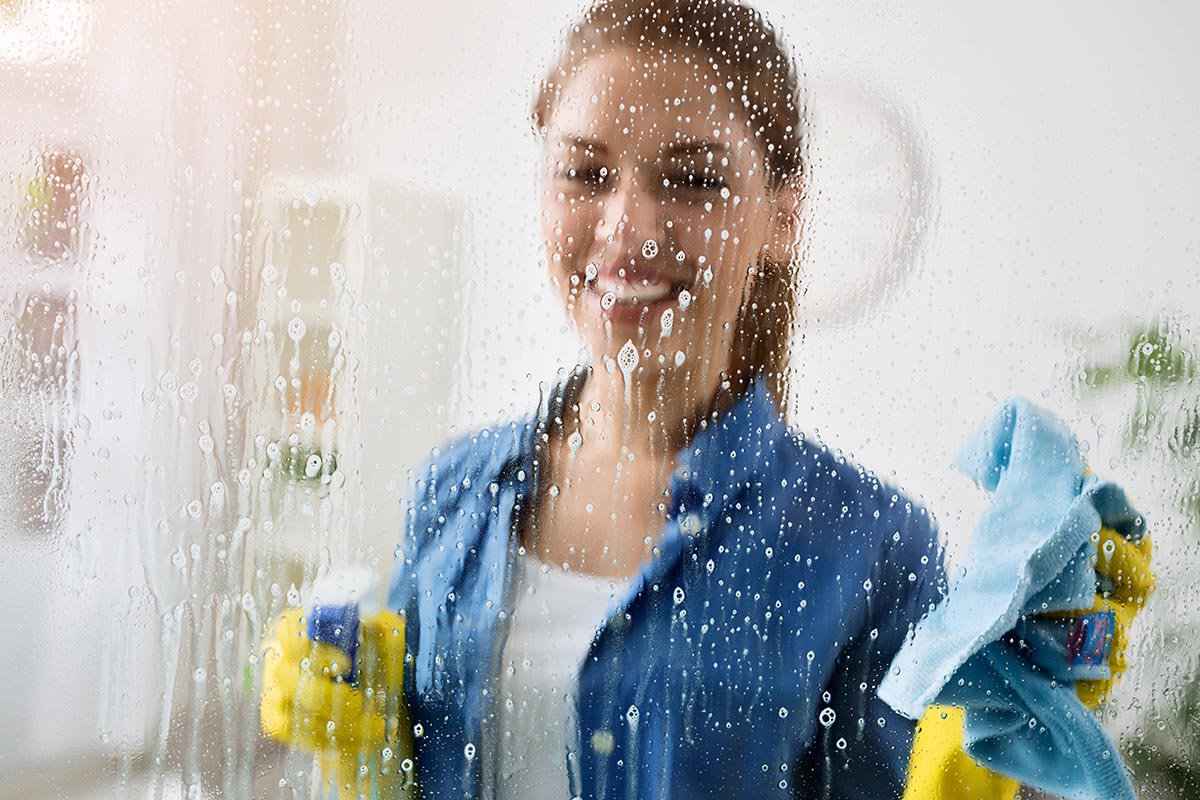Spring cleaning can be one of the most liberating and rewarding experiences of the year. Nothing says “I’m ready for summer!” like clean windows and plenty of natural light streaming into your home. Better yet, there’s no need to spend lots of money to get your spring window cleaning underway. While store-bought glass sprays can be great, there are plenty of effective and eco-conscious homemade window cleaner options as well.
At Master Seal, we believe in top-quality customer service and getting you great value for your money. If you’re looking for door, pediment, pilaster, or window renovations in the Baltimore, MD, or Washington, DC, areas, give us a call at 855.608.1580 or reach out online for a free price quote. Whether you’re looking for a new security storm door or a beautiful bay window installation, we’re here to help. Meanwhile, enjoy these free tips for brightening up your rooms with freshly cleaned windows using homemade solutions!
How to Make a Great Homemade Window Cleaner with Vinegar
Vinegar is a go-to product for many cleaning purposes. This is because it contains acetic acid, which is powerful enough to kill bacteria and dissolve dirt, grease, and mineral residue. An added perk: When you make a cleaner using vinegar, you can use it to tackle everything from your living room windows to your kitchen counter and even your yoga mat!
Distilled white vinegar works best for cleaning since it’s colorless and doesn’t stain. If the smell bothers you, consider apple cider vinegar instead, but dilute it more heavily since it does carry some color of its own. It’s also wise to use distilled water rather than tap since the latter may contain trace minerals that can streak glass surfaces.
To make and use your vinegar-based cleaning spray:
- Mix up a solution of 1 part distilled water and one part distilled white vinegar.
- Pour your mixture into a clean spray bottle reused from a previous purchase or available new from most drugstores or hardware stores.
- If desired, try mixing in a very small amount of essential oil, such as lavender or clary sage, to give your cleaner a subtle botanical fragrance. Start with one or two drops, shake up the mix, and give it a sniff before adding any more essential oil. You may also wish to spot test on a windowpane to make sure the oil content is low enough that it doesn’t streak the glass.
- Liberally spritz the surfaces you wish to clean, and use soft cotton rags and microfibers to cut through grime.
- Finish off by buffing with newspaper or even coffee filters to achieve a streak-free shine!
How to Make a Homemade Window Cleaner Using Rubbing Alcohol
Rubbing alcohol, which was sometimes hard to find during the early pandemic due to its extreme popularity as a sanitizer, works as well on windows as it does on various other surfaces. It has the added benefit of evaporating rapidly, meaning it’s less prone to leaving water spots than other glass cleaners. It is important to note even in the 70% solutions often available at drug stores, rubbing alcohol is more concentrated than you need for most glass cleaning ventures. Try the following steps to make an effectively dilute spray for your panes:
- Mix a quarter cup of rubbing alcohol with one cup of distilled water and 2 to 3 tablespoons of distilled white vinegar.
- Pour your mix into a clean spray bottle, and be sure to label its contents. Store it in a cool, dark place away from children or pets since rubbing alcohol is highly flammable.
- Enjoy your highly effective homemade glass cleaner by spritzing it onto windows, scrubbing with a cotton or microfiber cloth, and wiping away streaks with a coffee filter if desired.
How to Make a Homemade Window Cleaner Using Dawn Dish Soap
If your windows have a lot of stubborn dirt or your home includes features like bay or bow windows, meaning you simply have a lot of ground to cover, a dish soap-based cleaner may work best. Often used in professional settings with squeegees to make the job go even faster, Dawn dish soap works incredibly well as a base for homemade window cleaners. An excellent degreaser, it’s a great choice for windows regularly exposed to outdoor pollutants like car exhaust, factory smog, or even indoor airborne grime like cooking spatter.
To create a Dawn-based solution sure to cut through even the toughest window uglies:
- Mx 2 cups of distilled water with half a teaspoon of Dawn and put it in a spray bottle.
- Alternatively, if you have a lot of window surface to cover, you may wish to whip up a larger batch of cleaner, leave it in the bucket, and simply dip in a rag or soft scrub brush to tackle your windows. In these cases, investing in a squeegee may also be a good choice.
- If your Dawn-based mix needs even more oomph, you can incorporate distilled white vinegar as well. To the original proportion, 2 cups water to half a teaspoon Dawn, simply add a quarter cup of white vinegar for a powerhouse cleaning combo.
- As with any glass cleaner, giving your panes a final buff with a coffee filter or balled-up newspaper after scrubbing and squeegeeing helps achieve a streak-free shine.
Go Beyond Homemade Window Cleaning Solutions by Considering a Full Window Renovation with Master Seal
Contact the friendly team at Master Seal for more information about maximizing your home’s natural light and aesthetic appeal with clean, up-to-date windows. Our Rosedale, MD, location services the greater Baltimore and DC areas. Call 855.608.1580 or message us via our website to learn more about your renovation options.








